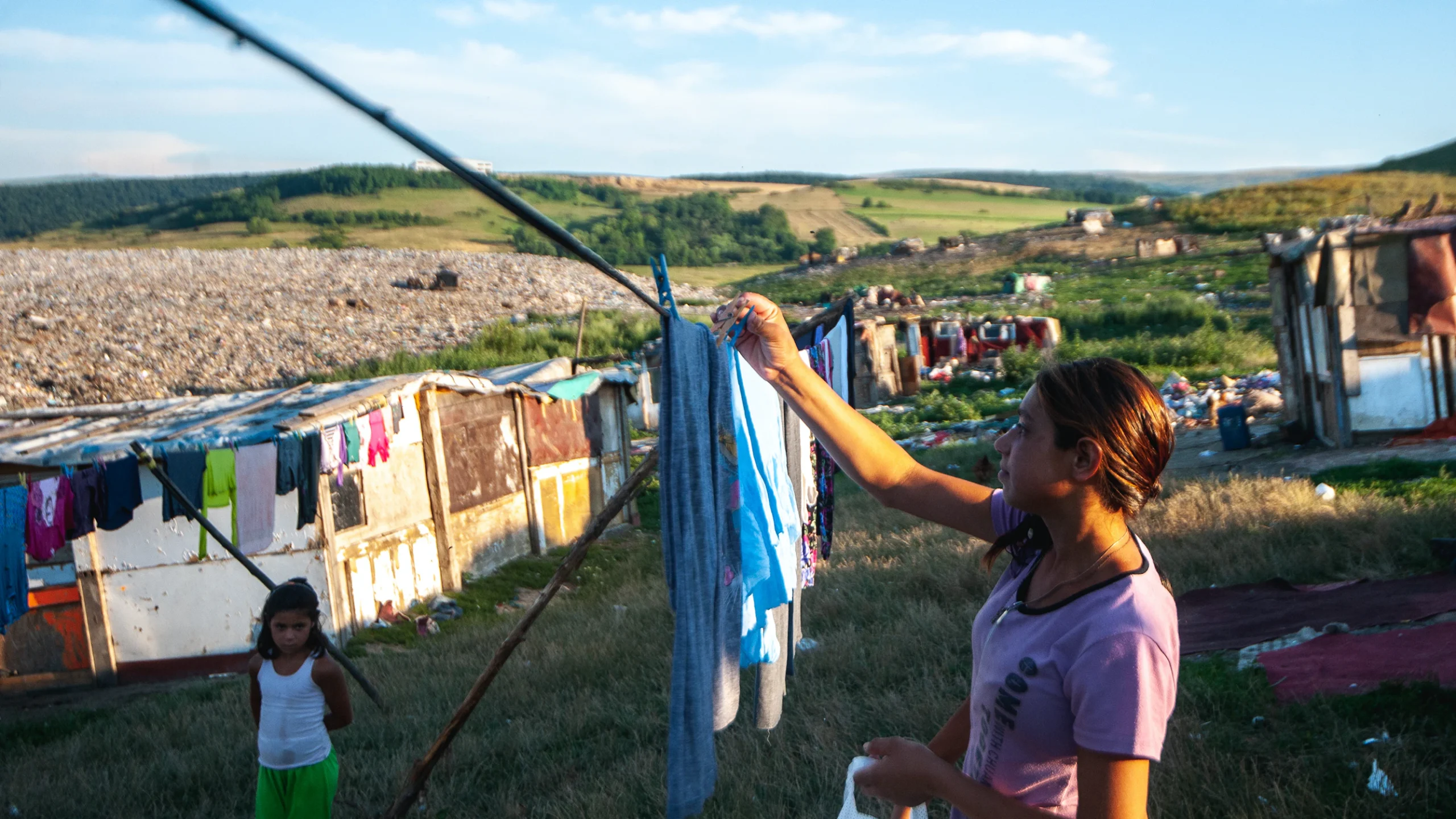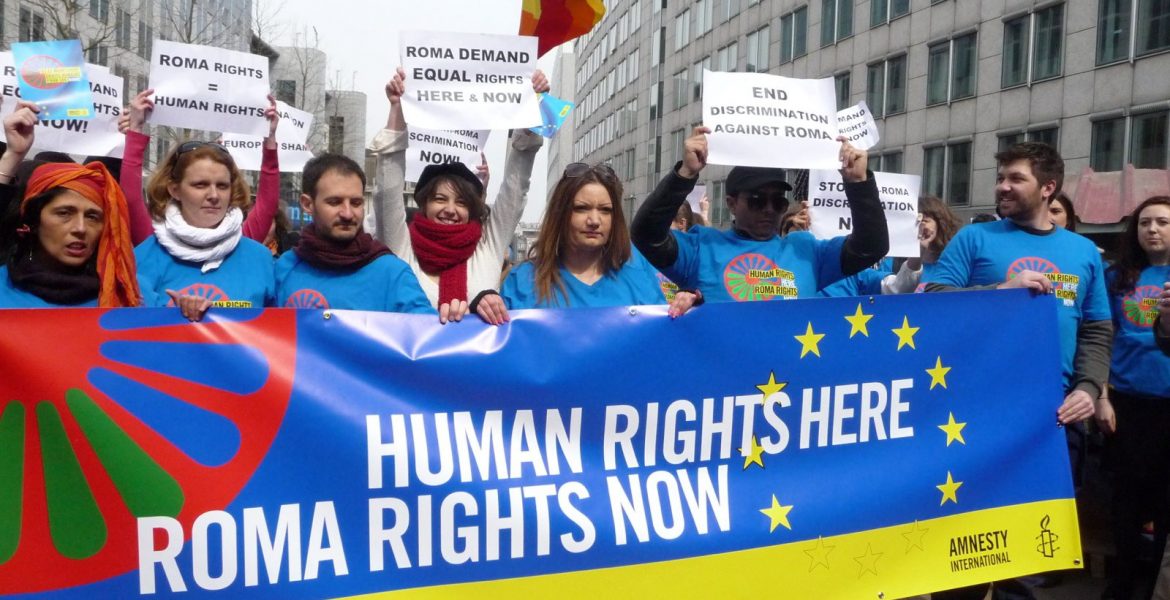By Anna Tsekani,
The Roma are Europe’s oldest and largest ethnic minority, as well as its most vulnerable. Despite this, Roma people continue to face discrimination, poverty, social health, and educational inclusion. Only recently have members of the European Parliament raised the urgent need to change the current situation.

Taking into consideration that in almost every European country Roma people tend to be far below the national average in every indicator of human development and on top of that they have very low incomes, poor health care, housing, literacy rates, and higher unemployment rates than the general population.
Clearly, Romani people are routinely denied their rights to housing, health care, education, and employment across the continent and many are subjected to forced eviction, racist assault, and police mistreatment. Still, the most important aspect is that communities, countries, and Europe as a whole are not attempting to assimilate these misunderstood people.
Millions of Roma live in remote slums and often they do not even have access to the essentials. They are unable to afford better housing, medication, or the costs of their children’s education because they are unable to find work. They live often without running water or electricity and they are unable to obtain the necessary health care, putting them at high risk of illness.
Romani children are routinely denied the right to an education. In countries across Europe, Roma have significantly lower rates of enrollment and completion in primary education than the general population. This is why they are severely disadvantaged in the labor market.
This is the unavoidable result of systematic human rights violations resulting from centuries of prejudice and discrimination that have kept the vast majority of Roma on the periphery of European society. Europe’s governments can and must take action to break the vicious cycle of prejudice, poverty, and inequality.

But actually, who are the Roma people?
The Roma, also known as Gypsies, are thought to have first arrived in Europe from northern India in the ninth century and were well established in the majority of countries by 1300.
Today, Roma are not a homogeneous group and the term “Roma” refers to a variety of subgroups. The term ‘Gypsy’ is an abbreviation for “Egyptian” which was the name given to Roma immigrants when they first arrived in Western Europe because it was assumed they were from Egypt.
Today, an estimated 10 to 12 million Romani people live in the Council of Europe countries. Around 70% of them live in central and eastern Europe, where they make up between 6% and 10% of the population. There are also significant Romani minorities in Western Europe, particularly in Spain, France, and the United Kingdom. The vast majority of Roma are now settled, although some Western European Roma continues to live nomadic lives.
The Roma people have always been a persecuted population over the years. The first laws expelling Roma were passed in the 1490s and eventually, every country in central and western Europe followed suit. The Egyptians Act of 1530 in England prohibited Gypsies from entering the country and required those who were already there to leave within 16 days.
In many countries, efforts to expel Roma were replaced by policies of forced assimilation. Roma was prohibited from wearing distinctive clothing, speaking their own language, or marrying other Roma. There were also attempts to coerce Roma into settling.
When the Nazis took power in Germany in 1933, they saw the Roma as “racially inferior” and set out to exterminate them. Roma were denied civil rights, forced sterilized, used in medical experiments, and interned in concentration camps. Thousands were gassed, shot, or starved to death in the occupied countries of Eastern Europe and thousands were executed.
During World War II, the Nazi regime and its collaborators are estimated to have killed between 250,000 and 500,000 Roma.
In the twenty-first century, Roma continue to face openly racist and discriminatory language and attitudes that are widely tolerated and shared in society. Mainstream politicians can gain popularity quickly by promising to crack down hard on “Gypsy crime” or rid a town of “Gypsy beggars”. Even extreme forms of prejudice can be expressed without serious repercussions. Far-right political parties with openly anti–Roma agendas are growing in popularity.
The increased migration of Romani people into Western Europe, which resulted from the extension of free movement to eight new EU member states, was met with a resurgence of anti–Roma sentiment.
Unfortunately, many governments’ responses have been to stigmatize and punish. Roma are being further marginalized.
States are also failing to protect Roma from racially motivated crime, which includes not only isolated assaults but also vigilante attacks on Roma settlements or communities.
Many European countries’ criminal justice systems are failing to effectively prevent, investigate and prosecute these crimes.
The European Parliament recently adopted a set of recommendations aimed at improving the precarious situation of Roma settlements throughout the EU.
Taking into consideration that Roma are Europe’s largest ethnic minority and face poverty and social exclusion in several member states around the globe, at the same time Roma population has faced more than five centuries of widespread and enduring discrimination, rejection, social exclusion, and marginalization all over the world and in all areas of life.
The main issues that require immediate attention are a lack of decent, desegregated housing, including clean drinking water, electricity, sanitation, sewage, and waste treatment, as well as persistent discrimination and segregation of Roma children within schools. MEPs also call attention to a lack of health care, long–term unemployment, police abuse, and insufficient access to justice.

Member states should distribute funds regionally and locally in order to better meet the immediate needs of Roma people living in EU settlements. Any impediments to effective funding use, including direct and indirect forms of discrimination, must be addressed.
MEPs say the Commission should set up an early warning system to detect abuse or misuse of European Structural and Investment Funds (ESIF) and other EU funds earmarked for addressing Roma issues. They also urge the Commission to eliminate marginalized Roma settlements across the EU gradually by 2030. Involving Roma community members who do quality social work in the settlements would be one way to persuade Roma people to leave.
MEPs demand that Roma children be adequately included in national Child Guarantee action plans. At the same time, it is vital that the strengthened Youth Guarantee and Erasmus Plus programs to be used in order to promote social cohesion and employment among Roma youth. On top of that MEPs claim that Roma participation and leadership should be prioritized in national Roma strategic frameworks in order to promote social inclusion and democratic participation.
It is critical that every community, country, and member of the European Parliament try to help this population in any way they can in order for them to be assimilated into society and Europe in general.
References
-
Human rights on the margins Roma in Europe. amnesty.org.uk. Available here
-
Global Study on the human rights situation of Roma worldwide. ohchr.org. Available here
-
Data reveals shocking hardship of Romani people in Western Europe. euraktiv.com. Available here




